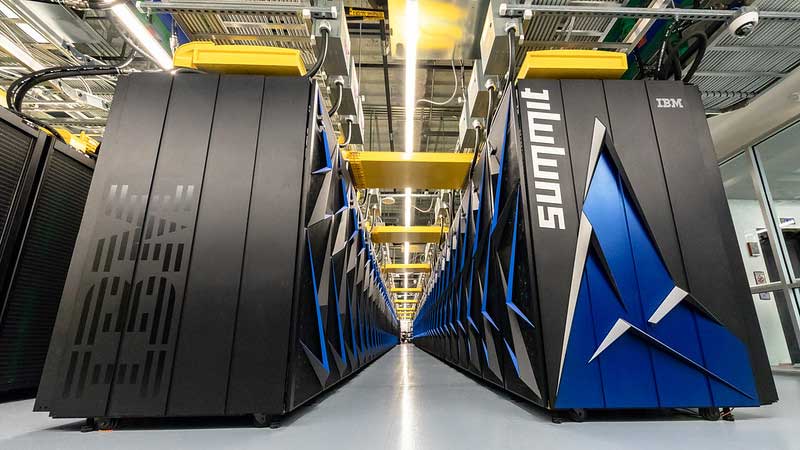Folding@Home Now More Powerful Than Top 500 Supercomputers Combined
Many people are donating their PC's leftover power to help fight the coronavirus.

After weeks of recruiting, Folding@Home has now grown to so many users that it is surpassing 2.4 ExaFLOPS of computational power, making it a staggering (give or take) 15 times as powerful as the world's strongest supercomputer, IBM's Summit at the Oak Ridge National Laboratory.
With our collective power, we are now at ~2.4 exaFLOPS (faster than the top 500 supercomputers combined)! We complement supercomputers like IBM Summit, which runs short calculations using 1000s of GPUs at once, by spreading longer calculations around the world in smaller chunks! pic.twitter.com/fdUaXOcdFJApril 13, 2020
Summit is capable of a sustained output of 149 PetaFLOPS with a peak of 200 PetaFLOPS, while the Sierra supercomputer peaks at 125 PetaFLOPS. Continue down the list, and, according to Folding@Home's math, its network of folders is stronger than the top 500 supercomputers combined.
It has to be noted that the Folding@Home network is growing so fast that its creators aren't actually able to keep everyone's computers loaded with work. This means that although the network has a capacity of 2.4 ExaFLOPS, it isn't being utilized fully.
That's no surprise after the surge in popularity of the service, but the organization has been working on creating more work, as tweeted by Greg Bowman, Folding@Home's director:
More GPU work units are coming for @foldingathome. We've had to shift some of our effort from setting up projects to moving data off servers to make room for more data. Its amazing how quickly the data is coming in! Something like 6TB/hr.April 14, 2020
This isn't to say that Folding@Home has rendered supercomputers obsolete in this battle. Whereas supercomputers are great at completing big calculations very quickly, the Folding network takes longer to complete huge amounts of individual, smaller work units. Folding@Home is also great for completing big calculations that can be split up into smaller chunks and when turnaround time isn't critical. It just depends on what the researchers' needs are and what they can afford. And currently, there are numerous organizations donating supercomputers to fight the coronavirus.
Folding@Home is a great way to contribute to the fight against COVID-19 with your PC. When you donate its leftover CPU and graphics card power to the network, Folding@Home assigns workloads to your PC from researchers studying COVID-19, Alzheimer's, Huntington's, Parkinson's or other diseases. All it costs is a little electricity.
Interested? Help the Tom's Hardware Folding@Home team for the last day before our competition with AnandTech is over.
Stay On the Cutting Edge: Get the Tom's Hardware Newsletter
Get Tom's Hardware's best news and in-depth reviews, straight to your inbox.
Niels Broekhuijsen is a Contributing Writer for Tom's Hardware US. He reviews cases, water cooling and pc builds.
-
tennis2 That's nuts!Reply
For anyone getting discouraged about lack of work units, my CPU has been getting WU's pretty consistently. Definitely not as many PPD as GPUs can produce, but every little bit helps.
